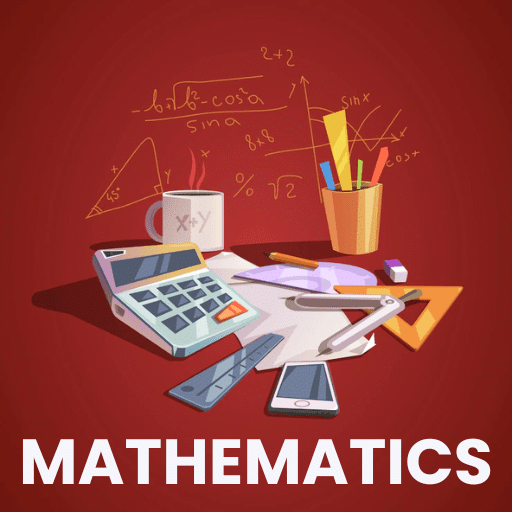Revision Notes: The Parliamentary Committees, Comptroller & the Auditor General- 1 | SSC CGL Tier 2 - Study Material, Online Tests, Previous Year PDF Download
Parliamentary Committees
Parliament, as a deliberative body, is overburdened by the task of discussion, proposals, motions and overseeing the administrative action of the experts with professional sophistication. Parliamentarians, on the other hand, find it difficult to deliberate adequately on such action, which results in patchy supervision of the administration. The various devices at Parliament's disposal, such as question hour and debates, do help maintain legislative control but are not adequate. To make parliamentary surveillance more effective and meaningful, Parliament needs an agency of its own in which the whole House has confidence. Also, there is need to make parliamentary work smooth, efficient and expeditious.These goals are achieved through parliamentary committees.
They function as subordinate bodies created by Parliament to assist in its legislative work.
The Constitution does not make any special provision for parliamentary committees. The rationale behind this deliberate omission was to leave it to parliament to create such bodies according to time and needs.
Definition
A parliamentary committee differs from any other committee of Parliament. It may be defined as one that: (i) is appointed or elected by the House or nominated by the Speaker/Chairman; (ii) works under the direction of the Speaker/or Chairman; (iii) presents its report to the House —the Speaker/ Chairman; and (iv) has a secretariat provided by the Lok Sabha/Rajya Sabha Secretariat.
Type of committees
Parliamentary committees may be (i) ad hoc and (ii) non ad hoc or standing.
Ad hoc Committees
Ad hoc committees are constituted by the House to consider and report on a specific matter. They become 'functus officio' as soon as they have completed their work on these matters. Examples of ad hoc committees are select and joint committees on the bills, railway convention committee, on draft five years plan, committee on the conduct of a member, study committee on sports etc.
A select committee is constituted mainly for individual bills or investigation, inquiry or nominated by the Speaker. The Chairman is essentially appointed by the Speaker. But if the deputy Speaker is its member, he automatically becomes its Chairman. Onethird of its members make the quorum. Decisions are taken by majority vote system.
A joint committee is formed on 2:1 ratio of the members from the Lok Sabha and the Rajya Sabha.
Its main purpose is to check the duplication of proceedings in both House. It saves time and induces an appreciative and cooperative spirit among members of the House.
Standing Committees
These are permanent committees, with their members elected by the House or nominated by the Speaker. They are constituted every year or from time to time.
There are 17 standing committees at present, which may be grouped in five categories, as follows;
(i) Financial committees: Committee on Estimates, Committee on Public Account, and Committee on Public Undertaking.
(ii) House committees: Committee on Absence of a Member, Business Advisory committee, Committee on Private Member's Bill and Resolution, and Rules Committee.
(iii) Enquiry committees: Committee on Petitions and Committee on Privileges.
(iv) Scrutiny committees: Committee on Government Assurances, Committee on Subordinate Legislation, Committee on Papers Laid on the Table, and Committee on Welfare of Scheduled Castes and Scheduled Tribes.
(v) Service Committees: related to the services and facilities to members. Important ones are: General Purposes Committee, Library Committee, Joint Committee on Salaries and Allowances of Members of Parliament.
Important standing committees
Financial Committees
Parliament cannot discuss minute details of the tax proposal and expenditure. Although the major part of the budget session is devoted to discussing the tax proposals and expenditure, the discussion is neither conclusive nor exhaustive. To get over this acuna, the financial committees make detailed scrutiny of governmental expenditure and performance. The term of all financial committees is one year. No ministers can become their members. These committees do not deliberate upon the policy approved by Parliament. They examine only the administration ex-post facto. Another noticeable feature is that they are relatively autonomous and function within the rules set up by the Committees and approved by the Speaker.
Estimates Committee
It has 30 members elected from the Lok Sabha and none from the Rajya Sabha. Its functions are:
(i) to report what economies, improvement in organisation, efficiency of administrative reforms consistent with the policy underlying the estimates may be effected;
(ii) to suggest alternative policies in order to bring about efficiency and economy in administration;
(iii) to examine whether the money is well laid out within the limits of the policy implied in the estimates; and
(iv) to suggest the form in which the estimates should be presented to Parliament.
Public Accounts Committee (PAC)
It consists of 15 members from the Lok Sabha and 7 from the Rajya Sabha. Members are elected by proportional representation system, based on single transferable vote. An Opposition Party member generally holds the office of the Chairman of PAC.
The PAC examines the accounts of the sum granted by Parliament. It satisfies itself whether the sum was spent by the authorised agency and for the assigned purpose. It also examines the circumstances leading to excess expenditure over the money granted.
Committee on Public Undertaking (CO-PU)
It consists of 22 members—15 elected by the Lock Sabha and 7 from the Rajya Sabha. Since the money invested in public undertakings is drawn from the Consolidated fund of India, it is necessary that Parliament should have adequate control over their affairs. The functions of COPU are: (i) to examine reports and accounts of public undertaking specified in the Fourth Schedule of the Rules of Procedure; (ii) to examine the reports of the CAG thereon, if any; (iii) to examine, in the context of the autonomy and efficiency of a public undertaking whether its affairs are managed in accordance with sound business principle and prudent commercial practices; and (iv) to exercise such other functions vested in the Public Accounts Committee and the Estimates Committee in
relation to the Public Undertakings as are not covered above. The thrust is investigating the aspects of functioning rather than the policy approved by Parliament.
Additionally,the committee examines the cases of under assessment, tax evasion, non-levy of duties, misclassification etc. It also identifies the loopholes of the tax laws and suggests remedies to plug them.
The Comptroller and Accountant General assists the committee in its function and participates regularly in its meetings.
House Committees
Business Advisory Committee
The Business Advisory Committee is constituted under rule 30(1) of the Rules of Procedure and Conduct of Business in the Rajya Sabha. It consists of eleven members, including the Chairman and the Deputy Chairman, nominated by the Chairman. The Chairman is the Chairman of the Committee. If the Chairman is for any reason unable to preside over any meeting of the Committee, the Deputy Chairman acts as the Chairman for that meeting. The Committee holds office until a new committee is nominated. Normally the Committee is reconstituted every year.
The function of the Committee is to recommend the time that should be allocated for the discussion of the stage or stages of such Government Bills and other business as the Chairman in consultation with the Leader of the House may direct for being referred to the Committee.
The Committee may also indicate in the proposed timetable the different hours at which the various stages of the Bill or other business are to be completed. The Committee performs such other functions as may be assigned to it by the Chairman from time to time.
All proposals for late sittings of the House, dispensing with the Question Hour or lunch hour, an extension of sittings of the House beyond the normal hours of adjournment and fixing additional sittings/cancellation of sittings are placed before the committee for its recommendation.
The timetable in regard to the business of the Rajya Sabha as settled by the Committee is reported by the Chair to the House and is then notified in Parliamentary Bulletin, Part-II.
The Committee may also generally identify matters of public interest in respect of which Calling Attention or Short Duration Discussion notices have been received, and which could be listed for being taken up in the House with the permission of the Chairman.
During the Budget Session, the Committee also decides on the Ministries whose work may be taken up for detailed discussion in the second half of the Session.
Committee on Private Member's Bills and Resolutions
This committee of the Lok Sabha has 15 members. The Deputy Speaker is its Chairman. The committee allots time to private members' bills and resolutions, and examines private members' bills seeking constitutional amendments.
Committee on Absence of Members from the Sittings of the House
The absence of a member for more than 60 days leads to his disqualification. So, to manage the affairs of a members' absence, a committee exists in the Lok Sabha with 15 members. The members forward their request for absence to this committee. In the Rajya Sabha, the House itself looks into the matter.
Rules Committee
The Lok Sabha's Rules Committee has 15 members and the Rajya Sabha's Committee 10 members.
The Speaker/Chairman of the House is its Chairman.
The committee considers the matters of procedure and conduct of business in the House and recommends any amendments or addition to the rules that may be deemed to be necessary.
Enquiry Committees
Committee on Petitions
The Lok Sabha Committee consists of 15 members and the Rajya Sabha Committee 10. The Committee examines the petitions to be referred to Parliament and suggest remedial action to redress the grievance and prevent such complaints in future.
Committee of Privileges
Breaches of parliamentary privileges occur, which, if not dealt with, can spoil the entire proceeding of Parliament. This breach is referred to the Committee of Privileges even though Parliament has full authority/competency to deal with it. The committee is constituted usually every year by the presiding officers of the respective houses. In the Lok Sabha, it consists of 15 members, and in the Rajya Sabha 10.
Scrutiny Committees
Committee on Government Assurances While answering the MPs, the ministers make promises, assurances and undertakings. This committee watches the implementation of these assurances. The Lok Sabha Committee consists of 15 members, and in the Rajya Sabha 10.
|
1366 videos|1313 docs|1016 tests
|
FAQs on Revision Notes: The Parliamentary Committees, Comptroller & the Auditor General- 1 - SSC CGL Tier 2 - Study Material, Online Tests, Previous Year
| 1. What is the role of Parliamentary Committees? |  |
| 2. Who is the Comptroller and Auditor General (CAG)? |  |
| 3. What is the significance of the Comptroller and Auditor General's role in parliamentary committees? |  |
| 4. How are Parliamentary Committees and the Comptroller and Auditor General's work related? |  |
| 5. Can the recommendations made by Parliamentary Committees and the Comptroller and Auditor General be ignored by the government? |  |


























